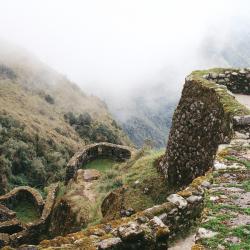Traveling During Off-Peak Seasons: Pros and Cons
In an era where globetrotting is no longer limited to the elite, traveling during the off-peak seasons has emerged as a popular alternative to the more crowded and often chaotic peak-season travel. While peak seasons promise buzzing locales and vibrant atmospheres, off-peak travel offers a different kind of allure. Let's delve into the pros and cons of embarking on a journey when the crowds have dispersed.
Pros of Traveling During Off-Peak Seasons
-
Cost Savings: One of the most compelling reasons for off-peak travel is the potential for significant savings. Airlines and hotels often lower their prices to attract visitors during quieter months, allowing travelers to stretch their budgets further. This means you can enjoy luxury experiences at a fraction of the cost.
-
Less Crowded Attractions: Popular tourist sites can become crowded and overwhelming during peak times. By traveling during the off-season, you can experience these attractions without battling throngs of tourists. This can afford you a more intimate and immersive experience.
-
Authentic Local Interactions: With fewer tourists around, locals are often more open and available for genuine interactions. This provides a chance to explore cultures and neighborhoods in a more meaningful way. You might find yourself engaged in conversations that offer insights and stories not found in travel guides.
-
Flexible Schedules and Availability: Off-peak seasons typically mean more flexible options for activities and accommodations. You are more likely to snag a last-minute reservation at a popular restaurant or experience spontaneous adventures that might otherwise be booked solid.
-
Quieter Experiences: If your idea of the perfect getaway involves peace and quiet, off-peak travel is ideal. Whether you are savoring a serene beach, a tranquil vineyard, or a hushed museum, the quieter atmosphere allows for relaxation and reflection.
Cons of Traveling During Off-Peak Seasons
-
Limited Services and Attractions: Some attractions may reduce their hours or close altogether during the off-peak season. Restaurants and shops might also have limited offerings, and some festivals or events may not take place outside the peak months.
-
Unpredictable Weather: Off-peak seasons are often aligned with less favorable weather conditions. Travelers may encounter unexpected rain, cold, or even storms depending on their destination. Being prepared for potential weather-related disruptions is crucial.
-
Reduced Flight Options: While flights may be cheaper, there are often fewer options to choose from, which can make travel planning less convenient. Long layovers or inconvenient flight times may be part of the package when flying during the off-season.
-
Less Vibrant Atmosphere: Some destinations thrive on the energy brought by tourists. In the off-season, the lack of buzz can sometimes lead to a less festive or lively atmosphere. This can impact the overall vibe and can feel less exciting or transformative.
-
Potential Maintenance and Renovations: With fewer visitors, some hotels, museums, and attractions take the quiet season as an opportunity for renovations or maintenance. This could mean certain features are unavailable during your visit.
Conclusion
Traveling during off-peak seasons offers a unique set of benefits and challenges. While the promise of savings, tranquility, and authenticity is appealing, it is essential to weigh these against the potential for limited access and unpredictable conditions. Ultimately, whether or not off-peak travel is right for you depends on your personal preferences and priorities as a traveler. By carefully considering these factors, you can plan a memorable trip that aligns with your expectations and desires.






















